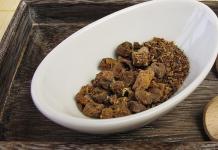How are lemon and lime good for you?
Both juicy lemon and bright lime are very rich in vitamin C, which helps to strengthen the immune system and help prevent a number of heart ailments. Also in these healthy fruits contain potassium, folic acid, vitamin B6 and antioxidants. And the flavonoids and limonene they contain boast excellent anti-cancer properties, and these properties persist throughout the day from the moment these citrus fruits are consumed.
The antibacterial, anti-inflammatory and antiviral properties of lemon and lime make these fruits an excellent addition to antibiotic treatment, and their digestive enzymes have a beneficial effect on digestion. To get rid of bloating, nausea, or heartburn, simply make an herbal tea with a slice of lime or lemon. It is quite permissible to use the juice obtained from these fruits instead of juicy slices, because it contains the same substances necessary for the body!
What are lemon and lime juices useful for in cooking?
There are hardly any daredevils who dare to drink pure lemon or lime juice. But in cooking this useful products there is simply no equal!
Lemon and lime juices are an excellent vitamin supplement not only for tea or coffee, but also for a great variety of other drinks, including water. It is especially good to add small amounts to other juices during breakfast. Often, with the addition of these juices, excellent cocktails are prepared - both alcoholic and non-alcoholic.
Lemon or lime juice makes an excellent dressing for vegetable salads and an unmatched addition to pasta sauces, okroshka, your favorite vegetable soups, as well as a wide variety of meat, poultry or fish dishes. Plus, these juices help add a captivating flavor to your favorite desserts and homemade baked goods!
Lemon juice= crumbly rice!
Many hostesses periodically get upset because the rice they cooked turned out to be absolutely not crumbly, and instead of appetizing white grains, a huge sticky lump looks sadly from the pan. Lemon juice helps to cope with such a nuisance! All that is required is to add a tablespoon of lemon juice to the water in which the rice is cooked! Simple, fast and very effective!
Refreshing summer drinks
In hot summer, you simply cannot do without refreshing drinks! Summer has already arrived, which means it's time to master the skills of their preparation!
Non-alcoholic mojito. First, sugar syrup is prepared - three tablespoons of sugar are poured with a quarter cup of water and heated over low heat until the sugar is completely dissolved. When the water boils, the syrup is removed from the stove and allowed to cool to room temperature. Next, seven to eight fresh mint leaves are placed in three pre-prepared glasses, one tablespoon of cooled sugar syrup is poured and about one and a half tablespoons of lemon juice are poured. Then gently crush the mint with a pestle or spoon - it is important to make sure that it does not turn into dust. And after that, 100 ml are poured into glasses mineral water, mix everything well and add three to four ice cubes. The finished drink can be decorated with a sprig of mint and a slice of lemon.
Cucumber-chamomile lemonade. A fresh cucumber weighing 100 g is kneaded in a mortar, after which it is immediately transferred to a blender bowl. Add 20 g of honey, 80 g chamomile tea and 20 ml of lemon or lime juice. Beat all the ingredients well and filter into a container filled with ice to the top. The drink is ready!
Where to find quality lemon and lime juices?
Do you value quality and rich taste? So it's time to turn your attention to Sicilia lemon and lime juices! These juices will be an excellent alternative to fresh fruits, because they are made from juicy Sicilian citrus fruits. the highest quality... GMOs, which often appear on modern juice packages, are not in them, and the presence of a dispenser built into the neck in each bottle makes this product very convenient to use. By the way, it can be stored for as long as nine months, which is also good news, because one bottle of valuable contents will last for a long time!
The main secret of the excellent taste and exquisite aroma of Sicilia juices lies in the presence of a patented capsule with lemon or lime essential oil built into the neck of the bottle. This capsule enriches juices with the necessary amount of essential oil and gives them an authentic lemon or lime flavor and subtle aroma with delicious notes of freshness! The most real revolutionary product on the market today!
The Sicilia brand, which is the manufacturer of these products, offers as many as three juice options: lemon juice, lime juice and lemon juice with mint, and, by the way, this range is quite enough to pamper yourself and your loved ones with new original tastes of familiar dishes or excellent refreshing summer drinks! With such helpers, even the most boring dishes and drinks will sparkle with bright colors!
The homeland of lemon is India, China and some Pacific islands with tropical climates. It is very much in demand in cooking, cosmetology and folk medicine... The first mention of lemon juice can be found in 300 BC in the work of the ancient Greek researcher Theophrastus. However, it was only used as a moth repellent.
O healing properties lemon juice only a thousand years later said the Tajik doctor Avicenna. It was used to relieve nausea, strengthen the cardiovascular system, treat gonorrhea, jaundice, and enhance the body's protective function.
Freshly squeezed lemon juice contains biologically active components that harmoniously combine with each other and, in their complex, have a positive effect on the human body. Its composition is almost identical to that of a regular lemon. It contains very few calories, making it an ideal supplement to your diet. Many people use it for weight loss.
Lemon juice is 90% water, and 100 grams contains 22 kcal.
In addition to dietary fiber, carbohydrates, and protein, lemon juice contains the following vitamins:
- Retinol (vitamin A)... It activates the immune system, improves vision and the speed of accommodation of the eyes, has a positive effect on the reproductive system and regulates metabolism.
- Thiamin (vitamin B1)... It is well absorbed in the body, normalizes the digestion process, participates in many biochemical processes, stabilizes muscle contraction and amino acid metabolism. He also participates in hematopoiesis and improves the motor function of the stomach.
- Riboflavin (vitamin B2)... Reduces the negative effects of toxins on internal organs, synthesizes enzymes, strengthens sleep and has a sedative effect. In addition, it thins the blood, ensures the correct functioning of the heart and improves the biliary function of the liver.
- Choline (vitamin B4)... Participates in the formation of the protective sheath of nerves and phospholipids, is responsible for the transmission of impulses. It also accelerates the breakdown of enzymes, "fights" excess homocysteine, strengthens the heart muscle and improves short-term memory.
- Pantothenic Acid (Vitamin B5)... It has a positive effect on the hormones of the endocrine glands, synthesizes neurotransmitters, fights free radicals and viruses. It also slows down the clogging of arteries with cholesterol plaques by normalizing the synthesis of fatty acids.
- Pyridoxine (vitamin B6)... Controls the excitability of the central and vegetative nervous system, forms new cells, increases the efficiency of carbohydrate absorption, forms red blood cells and stabilizes blood glucose levels. In addition, it stimulates the production of T cells and normalizes the balance of female hormones in the body.
- Folic acid (vitamin B9)... Takes an active part in the formation of hemoglobin, the neural tube of the placenta and the fetus, affects conception and synthesizes DNA.
- Ascorbic acid (vitamin C)... Fights free radicals and viral agents as it has an antioxidant effect. Protein synthesis occurs, healing of wounded skin areas is accelerated, the synthesis of steroid hormones is stabilized. It also increases the level of permeability of the walls of blood vessels and removes excess cholesterol from the blood.
- Tocopherol (vitamin E)... Significantly slows down the aging process, whitens age spots and freckles, reduces blood glucose levels and prevents atherosclerosis. In addition, it increases stamina, improves the condition of hair and nails, and stimulates sperm production.
- Nicotinic acid (vitamin PP)... It has an anti-inflammatory effect, retains the necessary moisture for the epidermis, cleanses tissues from congestion and rashes, evens out the complexion, and stimulates regeneration.
Among the vitamin-like substances:
- Zeaxanthin... Protects the lens of the eye from oxidative stress and maintains visual acuity, has antioxidant properties.
- Rutin... Strengthens the walls of blood vessels and capillaries, stabilizes blood pressure, facilitates allergic reactions, increases resistance to negative external factors and has antibacterial properties.
- Lutein... Prevents macular degeneration, reduces the risk of developing heart disease, improves vision.
- Biotin... Restores favorable microflora, reduces muscle pain, takes part in the metabolism of fats and proteins, stimulates cell division and growth.
Among the micro- and macronutrients are the following:
- Potassium... Increases immunity and performance, restores the work of the endocrine glands, prevents the development diabetes mellitus and normalizes the acid-base balance. It also helps in violation of the osmotic concentration of the blood.
- Calcium... Provides the correct activity of the skeletal system, affects blood coagulation, activates the pituitary gland and gonads. In addition, it strengthens cell membranes, prevents muscle spasms and cramps.
- Magnesium... It is necessary for the functioning of muscles and nerves, removes salts of heavy metals and toxins, prevents the deposition of kidney stones, and normalizes the activity of the gastrointestinal tract.
- Sodium... Carries out neuromuscular activity, restores water-salt balance and prevents fluid leakage from blood vessels. In addition, it is essential for the normal growth of the body.
- Phosphorus... Increases brain activity, takes part in most chemical reactions, affects metabolism and synthesizes a number of enzymes.
- Iron... Forms hemoglobin in the blood, ensures the full functioning of B vitamins, protects the body from viruses, infections and bacteria. In addition, it prevents fatigue and synthesizes thyroid hormones.
- Manganese... Actively promotes calcium absorption, controls blood sugar and builds connective tissue. Also, metabolic processes and the functioning of the nervous system depend on it.
- Copper... Builds up in bones, muscles, brain and blood. It affects the interaction of leukocytes and erythrocytes, provides vascular strength, prevents the development of skin diseases and synthesizes proteins.
- Iodine... Supports the activity of the endocrine glands, is responsible for cell regeneration, regulates vascular tone, and provides water and electrolyte metabolism. In addition, it improves the condition of the liver and brain, increases the activity of hormones of the reproductive system.
- Selenium... Strengthens the activity of stem cells, inhibits the aging process of the epidermis, promotes the production of thyroxine, triiodothyronine and testosterone, synthesizes coenzyme Q-10. It also has anti-allergic and anti-dystrophic properties, stimulates the activity of the endocrine and nervous systems.
Organic acids:
- Apple acid... Influences the synthesis of collagen in the epidermis, enhances immunity, speeds up metabolism and stabilizes the acid-base balance. The tone of the blood vessels also improves, and proenzyme structures are synthesized.
- Lemon acid... Possesses antioxidant properties, makes hair shiny, gives it strength and elasticity. It removes toxic substances and evens out the complexion.
The beneficial properties of lemon juice

Lemon juice has a wide range of health benefits. Due to the abundance of vitamins, organic acids, micro- and macroelements, it has a general strengthening effect on the body, significantly strengthens its immune system and provides energy. With an acute lack of vitamins, qualified specialists recommend consuming up to three lemons a day.
The benefits of lemon juice are as follows:
- Strengthening the walls of blood vessels... Due to the presence of ascorbic acid, the walls of the capillaries become stronger and more elastic, blood microcirculation is normalized, and bleeding is prevented. In addition, cholesterol plaques and blood clots are knocked out, blood pressure is stabilized, varicose veins and atherosclerosis are prevented.
- Replenishment of vitamin and mineral reserves in the body... The components of lemon juice enhance the protective function of the body, neutralize viral, infectious and bacterial agents, prevent vitamin deficiency and give more vitality. As a result, performance and mood improves.
- Improvement brain activity ... The chemical composition of the product contributes to increased concentration of attention, maintaining the balance of the psychoemotional sphere and strengthening memory. It allows a person to feel more confident and calmer.
- Acceleration of metabolic processes... The components of the product stimulate the absorption of biologically active compounds, break down fats, remove toxins, toxins and free radicals from the body. The presence of pectin in lemon juice contributes to the feeling of satiety. This allows you to regulate your appetite and not eat too much. Also, the product has diuretic properties and removes excess fluid from the body.
- Antioxidant effect... Thanks to some substances, lemon juice inhibits the aging process of cells, protects them from oxidative stress, restores the lipid barrier of the skin, whitens age spots, freckles, nourishes the epidermis and smoothes fine wrinkles. It also prevents the development of malignant processes in the body.
- Breath freshening... Lemon juice not only relieves unpleasant odor from the mouth, but also destroys bacteria and germs that are in it. As a result, it helps to cope with sore throat, reduce inflammation, prevent tooth decay and restore mucous membranes.
- Stabilization of digestion processes... The components of the product improve the activity of the liver, stimulate the production of bile, promote the elimination of toxins, heavy metals and excess uric acid, and stabilize intestinal transit. In addition, they help relieve bloating by dissolving sand in gallbladder, restore the functionality of internal organs and treat constipation.
- Support of acid-base balance in the body... The cells of blood vessels and skin are restored, fat does not accumulate, the pH is stabilized, and the state of sleep improves.
- Treating eczema... Lemon juice helps relieve irritation, relieve itching and remove serous papules.
- Antiseptic property... The components of the juice fight pathogenic bacteria, normalize microflora, prevent tissue decay and internal bleeding. In addition, they have an antiscorbutic effect.
- Normalization of the nervous system... The product nourishes nerve cells, improves the exchange of neurons in the central and autonomic nervous system.
Contraindications to the use of lemon juice

Despite the many beneficial properties of lemon juice, it is worth remembering that excessive consumption of the product invariably leads to bad consequences. It should also be noted that it cannot be drunk in its pure form. It negatively affects the enamel of the teeth and creates increased acidity in the stomach. Therefore, the liquid is most often diluted with water or added to other juices.
Contraindications to the use of lemon juice are given below:
- ... Frequent dizziness, a feeling of heaviness in the stomach, nausea with vomiting, diarrhea or constipation, white-gray plaques on the tongue, and excessive salivation are observed.
- Intestinal ulcer... The ingredients in lemon juice can increase flatulence, sweating, nausea, vomiting, and sour belching. The patient has a sharp weight loss.
- Pancreatitis. Essential oils contained in the product can irritate the pancreas and cause an aggravation.
- Hepatitis... There is a risk of developing cancers and cirrhosis of the liver. Appetite, as a rule, is absent, there is general weakness, apathy and joint pain.
- Cholelithiasis... Pain in the right hypochondrium, body temperature and sweating rises, vomiting of bile is observed, yellow spots appear on the skin, feces become discolored.
- Lactation period... There is a great risk that the baby may be negatively affected by the ingredients in lemon juice. He will have skin rashes, appetite will worsen, colic will appear.
- Biliary dyskinesia... The patient feels pain under the rib, numbness in the legs and arms, heart palpitations and bloating. Stagnation of bile, discoloration of feces and urine are possible.
- Enterocolitis... The chemical composition of the lemon nipple can cause pain in the navel area, flatulence, diarrhea and constipation, tissue metabolism disorders and weight loss.
- Cholecystitis... There is a general intoxication of the body, heart palpitations, chills, nausea, fever, excessive irritability and insomnia.
- Individual intolerance to individual components... There are rashes on the body, itching, incoherence and increased sweating. The patient has nausea accompanied by vomiting, abscesses on the gastric mucosa and impairment of mental activity.
It is best to consult a qualified professional before drinking lemon juice. He will conduct necessary examinations and will determine if it will call chemical composition you allergic reaction and in what quantities it is recommended to drink liquid.
How to take lemon juice on an empty stomach?

To help the body get more energy from food and normalize internal processes, it is recommended to regularly drink lemon juice. When we wake up, body tissues need fluid, so water with lemon comes to the rescue.
The drink effectively tones, saturates with biologically active components and removes toxins, helps in the fight against excess calories and causes a long-lasting feeling of satiety.
Drink lemon water half an hour before eating. During this time, metabolic processes will fully start in the body, gastric juice will begin to be produced, and the chemical composition of lemon juice will act as intended.
To prepare a drink, add 2 tablespoons of freshly squeezed lemon juice to 200 ml of warm water. To improve the taste, people with a sweet tooth sometimes add a teaspoon of honey.
Remember that regularity is important in this matter, not excess. Drink no more than one glass of lemon water.
The results of drinking lemon juice on an empty stomach will be visible after three days. The skin will be rejuvenated, acne lesions will diminish, and the stool will stabilize. But it is worth refraining from such a drink for those who have contraindications to the use of lemon.
It is also important to note that it is best to drink lemon water from a straw. Thus, there is a minimum contact of the liquid with the tooth enamel and better absorption of the components.
How to drink lemon juice on an empty stomach - watch the video:
So, we have established that lemon juice is a very rich drink that has a lot of vital components. It is only important to remember about the daily intake and special contraindications for use.


You can talk endlessly about the benefits of lemon. It is widely used in cooking, beauticians and home life. The only question is usability. Every time you have to buy a lemon, use a couple of drops of juice, and the unclaimed part of the lemon lies in the refrigerator for weeks until it gets moldy. To avoid such losses, it is wiser to make lemon juice and use it as needed.
Lemon is not seasonal fruit and there is no need to harvest lemon juice for the winter in large volumes. It is enough to prepare a bottle with a capacity of up to 0.5 liters, and this amount will be enough for you for a very long time.
Choose small fruits for juicing. They are more juicy, the skin is thinner, and the price tag is lower.
Wash the lemons with hot water, pour over boiling water and wipe dry. You can grate the lemon zest along the way, because after squeezing out the juice, the peel will have to be thrown away.

Cut the lemons in half and use a citrus device to squeeze out the juice.

Strain it through cheesecloth and pour it into a clean, sterilized bottle. Cork the bottle and put the juice in the refrigerator.

He does not need sterilization, pasteurization, or boiling. Sugar is also not worth adding, because lemon juice, unlike the more universal one. It can be added to meat dishes, or used for cosmetic masks, and sugar will be superfluous here.

Lemon juice without sugar, if stored in the refrigerator, is usable for at least 3 months, after which you can buy fresh lemons and make a new batch of such healthy and necessary lemon juice.
How to quickly make lemon juice, watch the video:
Refresh the drink by squeezing a large number of lemon juice. It is especially often used to flavor plain water and tea. Juice from one or two wedges is usually sufficient for most people, but you can try adding juice if you prefer a stronger, more refreshing taste.
You can protect the fruit from browning with lemon. Freshly cut fruits lose their color through a process called oxidation. Vitamin C or vitamin C contained in lemon juice reacts chemically with oxygen in the air and prevents the fruit from oxidizing. Smearing the sliced fruit with a little lemon juice will help maintain the fruit's color for a long time.
The vegetables will stay fresh for a longer time if you sprinkle them with lemon juice. Like fresh fruits, fresh vegetables are also prone to oxidation. As a result, their color will fade. Squeeze a small amount of lemon juice over fresh vegetables and stir to keep the colors vibrant.
Season your salads with lemon juice. The well-known vinaigrette uses a simple dressing of vinegar and olive oil. Instead of using vinegar, you can use lemon juice for an extra pungent flavor. For starters, try combining 1/4 cup olive oil and about 2 tablespoons (30 ml) lemon juice. You can use more lemon juice for a stronger taste, or you can reduce the sour taste by adding 1 teaspoon (4.8 g) of sugar or honey. You can also enhance the flavor of the dressing by adding salt and pepper to taste, or other herbs and spices.
- In addition to standard green salads, you can use lemon juice for dressing cooked vegetables, cold pasta, and more.
- Multi-ingredient salads can be drizzled with oil and lemon juice separately. You can also combine the two ingredients in one dressing, but remember that combining them can quickly moisturize the lettuce if there is too much dressing.
Your rice will become fluffier if you add lemon juice to the cooking water. While boiling the rice, squeeze 1 teaspoon to 3 tablespoons (5 to 45 milliliters) of lemon juice into the water. If you want your rice to feel fluffy without being too lemon-flavored, add 1 teaspoon (5 ml) lemon juice. The more juice you use, the stronger the flavor will be.
Reduce the amount of salt you use by substituting lemon juice for it. Salt acts as a food preservative and flavoring agent. A little salt is good, but too much salt can be harmful side effects for Your health. Lemon juice also helps preserve food and give it flavor, as the juice complements other flavors in your dish; thus, lemon juice may be a healthier choice than salt.
Step 1: prepare the lemons.
Rinse the required amount of lemons under running water, dry with paper towels. Then place the lemons one at a time on a cutting board, cut each citrus into 2 halves and use a hand-held juicer to squeeze the juice of the lemons directly into a measuring cup. From 1 kilogram of lemons, you should get about 500 - 600 milliliters of pure lemon juice. Then take a piece of sterile gauze and put the squeezed lemons in it one by one. With a clean hand, squeeze a lemon in cheesecloth and squeeze every last drop of juice from it.
Then take a piece of sterile gauze and put the squeezed lemons in it one by one. With a clean hand, squeeze a lemon in cheesecloth and squeeze every last drop of juice from it.  This process is necessary in order not to lose more than one drop of precious liquid and so that bones and pieces of films do not get into your juice.
This process is necessary in order not to lose more than one drop of precious liquid and so that bones and pieces of films do not get into your juice. Step 2: cook the syrup.
 Turn on the stove to medium heat, place a saucepan with the right amount of pure distilled water on it and bring it to a boil.
Turn on the stove to medium heat, place a saucepan with the right amount of pure distilled water on it and bring it to a boil.  After the water has boiled, add the required amount of cane sugar to it. Without stopping, stir the liquid mass with a kitchen spatula and cook the syrup for 5 - 6 minutes until complete readiness and sugar dissolution. Then remove the saucepan from the stove and let the syrup cool to room temperature.
After the water has boiled, add the required amount of cane sugar to it. Without stopping, stir the liquid mass with a kitchen spatula and cook the syrup for 5 - 6 minutes until complete readiness and sugar dissolution. Then remove the saucepan from the stove and let the syrup cool to room temperature. Step 3: mix syrup and lemon juice.
 After the syrup has cooled, pour lemon juice into it in a thin stream and stir the lemon mass with a kitchen spatula until smooth.
After the syrup has cooled, pour lemon juice into it in a thin stream and stir the lemon mass with a kitchen spatula until smooth. Step 4: refrigerate and store the lemon juice.
 As a result, you should get about 1.2 - 1.3 liters of lemon juice. Now pour the lemon nectar from the saucepan into a clean sterilized two liter jar or a container with a tight lid. Place the container in the refrigerator for 1 - 2 hours, depending on what temperature of the drink you prefer. After that, pour the juice into a glass and dilute it with ice cubes or cold clean, boiled distilled water. The ideal ratio is in a 300 gram glass for serving, pour 230 - 250 milliliters juice and add cold water, so that it reaches almost to the edge of the glass or place ice cubes so that the juice level rises almost to the edge of the glass. The refreshing juice is ready.
As a result, you should get about 1.2 - 1.3 liters of lemon juice. Now pour the lemon nectar from the saucepan into a clean sterilized two liter jar or a container with a tight lid. Place the container in the refrigerator for 1 - 2 hours, depending on what temperature of the drink you prefer. After that, pour the juice into a glass and dilute it with ice cubes or cold clean, boiled distilled water. The ideal ratio is in a 300 gram glass for serving, pour 230 - 250 milliliters juice and add cold water, so that it reaches almost to the edge of the glass or place ice cubes so that the juice level rises almost to the edge of the glass. The refreshing juice is ready. Step 5: serve lemon juice.
 Lemon juice is served chilled for adults and at room temperature for children. This drink is poured into a tall 300 thunder glass for serving and, if necessary, cooled with ice cubes or cold pure distilled water. If you serve lemon juice for any celebration, it is advisable to pour it into a decanter and add lemon cut into rings along with ice. This type of juice can be used to sweeten aperitifs such as whiskey, dry white wine, vodka, or add to fruit liqueurs and liqueurs, it gives aperitifs a certain zest. Savor with pleasure and enjoy! Bon Appetit!
Lemon juice is served chilled for adults and at room temperature for children. This drink is poured into a tall 300 thunder glass for serving and, if necessary, cooled with ice cubes or cold pure distilled water. If you serve lemon juice for any celebration, it is advisable to pour it into a decanter and add lemon cut into rings along with ice. This type of juice can be used to sweeten aperitifs such as whiskey, dry white wine, vodka, or add to fruit liqueurs and liqueurs, it gives aperitifs a certain zest. Savor with pleasure and enjoy! Bon Appetit! - - Sometimes lemon juice is prepared with honey, this juice turns out to be much healthier. Increase the amount of water by 100 - 150 milliliters and instead of sugar put 300 grams of honey of any kind in it. After the honey has melted, cool the syrup and strain it through cheesecloth so that there is no beeswax residue.
- - Can be added to lemon juice different types syrup, giving the drink different flavors, such as cherry, apple, tangerine or any other.
- - You can cook the syrup in any aluminum container.
- - Ice for this type of drink is best prepared from boiled, pure distilled water.
- - While making ice, you can add a few drops of syrup to the water or dilute it with a little lemon juice.



































